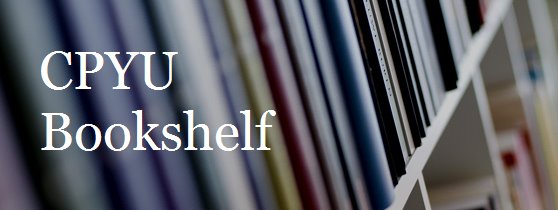 Current position/title: Co-director, Ransom Fellowship; Editor, Critique; Grandfather to seven above average kids.
Current position/title: Co-director, Ransom Fellowship; Editor, Critique; Grandfather to seven above average kids.Have you always been a reader? If not, how did you become one?
We didn’t have much to read around our house, as I remember, except for the Bible. We were fundamentalists, and didn’t think much of most literature—after all, why read a good book when you could read God’s book? I discovered the library at school in 7th grade (like Napoleon Dynamite, sports were not an option for me) and fell in love with books that could transport me in my imagination to worlds unseen. I read in school every chance I got, saving homework to do at home. My parents, who frowned on unassigned reading, thought I was very studious.
What are your reading habits and practices?
Read all I can, though now I do it with the understanding that good writing, good stories, and good books are good gifts of God. Each year I try to take a look at everything I’ve read recently and make an attempt to balance out the topics and genres so I don’t get too narrow. I also work hard to read works whose authors come from a variety of differing—even conflicting—perspectives (religious, ethnic, political, world view, etc.). When I get too busy to have time to read, I believe I am too busy and so I change my commitments.
Name 3 books that have been very influential in your life and one sentence that explains why.
One Day in the Life of Ivan Denisovich by Alexander Solzhenitsyn. Perhaps the finest novel written by a Christian in the 20th century, it revealed the power of the written word by helping to unravel the lies of Soviet totalitarianism.
The God Who is There by Francis Schaeffer. This was the wedge that pried open the closed box of fundamentalism by letting me see that the fact that Christ was Lord had implications for all of life.
Knowing God by J. I. Packer. I fell in love with theology as something that could be authentic and alive, and with the God that has shown himself in Scripture.
If you could meet any author, living or dead, who would it be and what questions would you ask him or her?
Cormac McCarthy: Would you please tell me the story of your spiritual pilgrimage?
According to a recent study by the National Endowment of the Arts, very few young people are reading. Do you have any ideas on how to get young people to read?
Nothing profound. All I’d suggest is read good stories aloud to them—as often as possible, in every setting possible. We like inviting people over for a meal and then moving to the living to listen to a story. Or when my wife and I speak at a college retreat, Margie offers to read stories at bedtime. Sadly, we’ve found too few grew up in homes where this was standard practice.
Past Reader Interviews




















